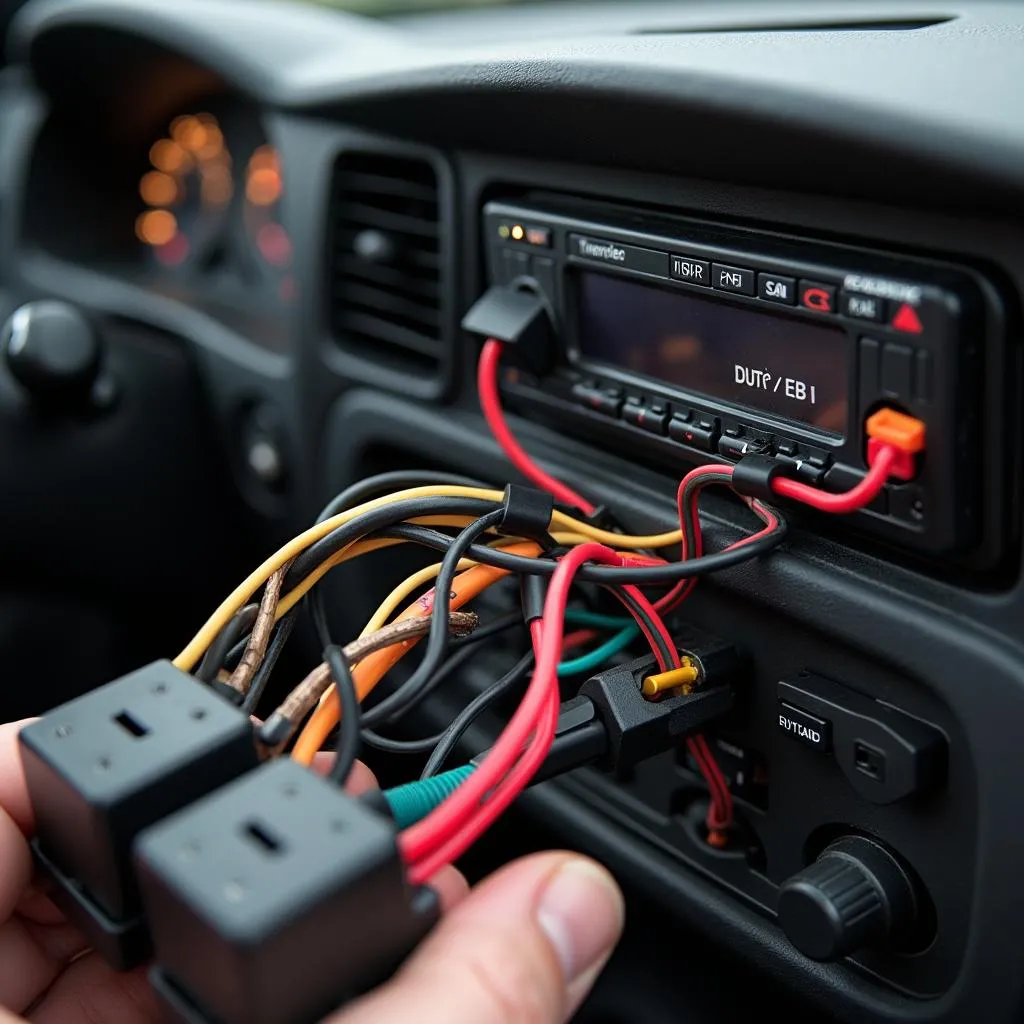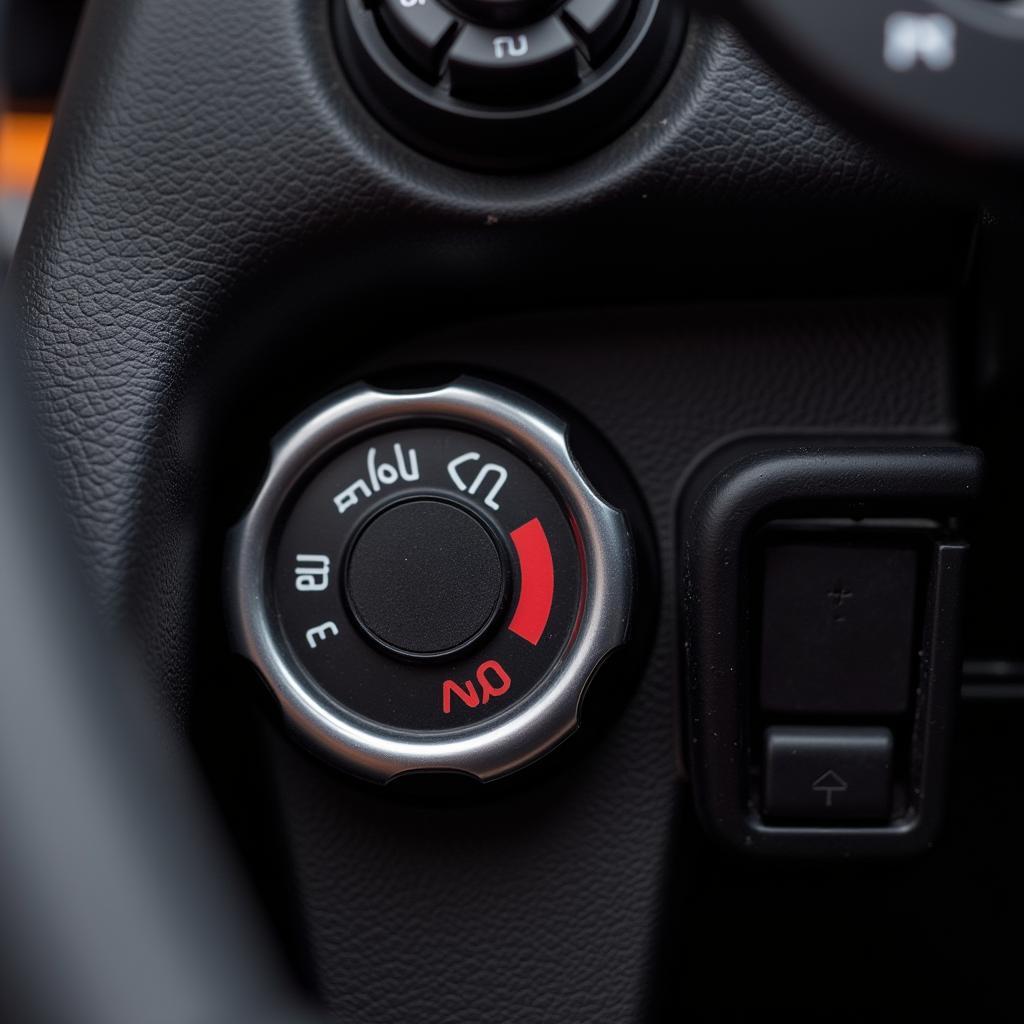Hearing a metal grinding sound when you apply your brakes is never a good sign. While it could be something minor, like a small rock lodged in the brake system, that grinding noise often signals a serious problem that needs immediate attention. Ignoring it could lead to costly repairs or even a dangerous driving situation.
Understanding Your Car’s Braking System
Your vehicle’s braking system is a complex network of components working together to slow down or stop your car. Here’s a quick rundown:
- Brake Pads: These pads press against the brake rotors to create friction and slow your wheels.
- Brake Rotors: These metal discs are attached to your wheels. The friction from the brake pads rubbing against the rotors is what generates the stopping power.
- Calipers: Calipers are hydraulic components that squeeze the brake pads against the rotors when you hit the brake pedal.
- Brake Fluid: This fluid transmits the force from your foot on the brake pedal to the calipers, activating the brakes.
Common Causes of Brakes Metal Grinding Warning
Several issues can lead to that dreaded metal grinding sound when you brake:
1. Worn Brake Pads
This is the most common culprit. Brake pads have a metal wear indicator designed to make a squealing or grinding sound when they become too thin.
Expert Insight: “Many car owners mistake the brake pad wear indicator sound for a simple squeak and ignore it. However, driving with severely worn brake pads can damage your rotors, leading to much more expensive repairs.” – John Miller, Automotive Engineer
2. Damaged or Warped Rotors
If you’ve driven with worn brake pads for an extended period, it can damage your brake rotors. Deep grooves or warping can cause a grinding noise and reduce your car’s braking efficiency.
3. Foreign Objects in the Brake System
Sometimes a small rock, a piece of debris, or even a loose piece of metal can get stuck between the brake pad and the rotor, causing a grinding noise.
4. Lack of Lubrication
The moving parts of your brake system need proper lubrication. If the caliper pins or other components lack lubrication, they can create friction and a grinding sound.
5. Serious Mechanical Issues
While less common, a grinding sound could also indicate a serious mechanical problem within your braking system, such as a failing caliper or a problem with the anti-lock braking system (ABS).
What to Do When You Hear Grinding Brakes
If you hear a metal grinding sound when braking, it’s crucial to take action immediately:
- Pull over safely: Don’t continue driving if you can avoid it.
- Assess the situation: Can you identify anything obviously wrong, like a flat tire or something stuck in the wheel well?
- Call a tow truck: Driving with a serious brake issue can be extremely dangerous. It’s best to have your car towed to a trusted mechanic.
Remote Diagnostics and Repair for Brake Issues
Advancements in automotive technology now allow for remote diagnostics and software solutions for certain car problems. Using specialized equipment, technicians can remotely access your car’s computer system to:
- Diagnose brake problems: Identifying the root cause of the grinding noise.
- Reprogram brake modules: In some cases, software issues within the brake control module can be resolved remotely.
Expert Insight: “Remote diagnostics can be incredibly helpful in pinpointing brake issues. While it can’t replace a physical inspection for every problem, it can often expedite the repair process and minimize downtime for car owners.” – Sarah Chen, Automotive Software Engineer
Preventing Future Brake Problems
Here are some tips to prevent future brake issues:
- Regular brake inspections: Have your brakes inspected by a qualified mechanic at least once a year or as recommended in your car’s owner’s manual.
- Timely brake pad replacement: Don’t wait until you hear grinding to replace your brake pads. Follow the recommended replacement intervals in your owner’s manual.
- Smooth braking habits: Avoid hard braking whenever possible.
Conclusion
Hearing a metal grinding sound when you apply your brakes is a serious warning sign that should never be ignored. Promptly addressing brake issues not only prevents further damage to your car but, more importantly, it keeps you and others safe on the road.


